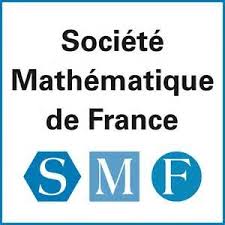@article{BSMF_1969__97__129_0,
author = {Nicolas, J. L.},
title = {Ordre maximal d{\textquoteright}un \'el\'ement du groupe $S_n$ des permutations et {\guillemotleft} highly composite numbers {\guillemotright}},
journal = {Bulletin de la Soci\'et\'e Math\'ematique de France},
pages = {129--191},
publisher = {Soci\'et\'e math\'ematique de France},
volume = {97},
year = {1969},
doi = {10.24033/bsmf.1676},
mrnumber = {40 #7340},
zbl = {0184.07202},
language = {fr},
url = {https://www.numdam.org/articles/10.24033/bsmf.1676/}
}
TY - JOUR AU - Nicolas, J. L. TI - Ordre maximal d’un élément du groupe $S_n$ des permutations et « highly composite numbers » JO - Bulletin de la Société Mathématique de France PY - 1969 SP - 129 EP - 191 VL - 97 PB - Société mathématique de France UR - https://www.numdam.org/articles/10.24033/bsmf.1676/ DO - 10.24033/bsmf.1676 LA - fr ID - BSMF_1969__97__129_0 ER -
%0 Journal Article %A Nicolas, J. L. %T Ordre maximal d’un élément du groupe $S_n$ des permutations et « highly composite numbers » %J Bulletin de la Société Mathématique de France %D 1969 %P 129-191 %V 97 %I Société mathématique de France %U https://www.numdam.org/articles/10.24033/bsmf.1676/ %R 10.24033/bsmf.1676 %G fr %F BSMF_1969__97__129_0
Nicolas, J. L. Ordre maximal d’un élément du groupe $S_n$ des permutations et « highly composite numbers ». Bulletin de la Société Mathématique de France, Tome 97 (1969), pp. 129-191. doi : 10.24033/bsmf.1676. https://www.numdam.org/articles/10.24033/bsmf.1676/
[1] and . - On highly composite and similar numbers, Trans. Amer. math. Soc., t. 56, 1944, p. 448-469. | MR | Zbl
[2] . - On highly composite numbers, J. London. math. Soc., t. 19, 1944, p. 130-133. | MR | Zbl
[3] . - Handbuch der Lehre von der Verteilung der Primzahlen. - Leipzig und Berlin, B. G. Teubner, 1909. | JFM
[4] . Ordre maximal d'un élément du groupe des permutations et nombres très hautement abondants, C. R. Acad. Sc. Paris, t. 266, 1968, Série A, p. 513-515. | MR | Zbl
[5] . - Sur l'ordre maximum d'un élément dans le groupe Sn des permutations, Acta Arithmetica, t. 14, 1968, p. 315-332. | MR | Zbl
[6] . - Highly abundant number, Bull. Calcutta math. Soc., t. 35, 1943, p. 141-156. | MR | Zbl
[7] . - Highly composite number, J. Indian. math. Soc., t. 8, 1944, p. 61-74. | MR | Zbl
[8] . - Primzahlverleilung. - Berlin, Springer-Verlag, 1957 (Die Grundlehren der mathematischen Wissenschaft, 91). | Zbl
[9] . - Highly composite numbers, Proc. London math. Soc., Séries 2, t. 14, 1915, p. 347-400 ; and Collected papers. - Cambridge, at the University Press, 1927, p. 78-128. | JFM
[10] . - The difference between consecutive prime numbers, J. London math. Soc., t. 13, 1938, p. 242-247. | JFM | MR | Zbl
[11] . - The difference between consecutive prime numbers, V, Proc. Edimburgh math. Soc., t. 13, 1963, p. 331-332. | MR | Zbl
[12] . - Eine Bemerkung zur construction grosser Primzahllucken, Arch. der Math., t. 14, 1963, p. 29-30. | Zbl
[13] . - An inequality for the arithmetical function g(x), J. Indian math. Soc., t. 3, 1939, p. 316-318. | JFM | MR | Zbl
[14] . - O liczbach (1, 2, ..., n) [en polonais], Wiadom Math., 2, (9), 1966, p. 9-10. | MR | Zbl
Cité par Sources :










